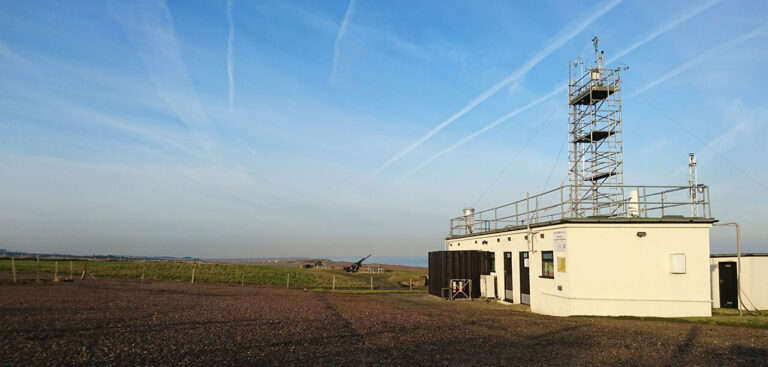A UK research consortium has launched a program to develop a national greenhouse gas (GHG) emissions measurement dashboard for the UK.
The Greenhouse Gas Emissions Measurement and Modelling Advancement (GEMMA) program is led by the National Physical Laboratory, in partnership with the National Centre for Atmospheric Science (NCAS), Met Office, National Centre for Earth Observation and the University of Bristol.
The team will work together to create an integrated network to monitor the entirety of all sources and sinks of GHG in the UK. The information database will play a key role in helping to achieve emission reduction targets nationally, and support global efforts to limit climate temperature rise.
Currently UK net emissions can only be calculated from known and recognized sources and sinks. However, Earth’s climate responds to all contributions, whether known or not, which is where the new measurement program provides the key to success.
GEMMA will implement a top-down systems approach to complement the detail of traditional bottom-up inventories, to provide the best available UK net emissions information.
As part of the investment, NCAS will lead upgrades on its nationwide measurement facilities, initially providing enhanced capability for monitoring gases at Weybourne Atmospheric Observatory and a series of Air Quality Supersites in major cities.
NCAS will also explore whether unmanned aerial vehicles can provide a long-term solution for collecting emissions data in the atmosphere, working closely with the University of Manchester.
Dr Grant Forster, lead scientist at the NCAS Weybourne Atmospheric Observatory, and research scientist at the University of East Anglia, said, “The GEMMA program will enable NCAS to further develop our world-leading greenhouse gas measurement monitoring network. GEMMA will support upgrades at our Weybourne Atmospheric Observatory – a Global Atmosphere Watch station – and our nationwide air quality sites. Our research team will also explore innovative use of drones, as a way to detect greenhouse gas emissions in different environments around the world.”
Over the next two years the team will research, develop and demonstrate a system which will allow the UK to accurately measure and assess changes in atmospheric greenhouse gases on a monthly basis.
The investment in new capability, funded by UK Research and Innovation and the Natural Environmental Research Council, will bolster efforts to improve national greenhouse gas data, which provide powerful and timely insight into the UK’s net zero transition.



